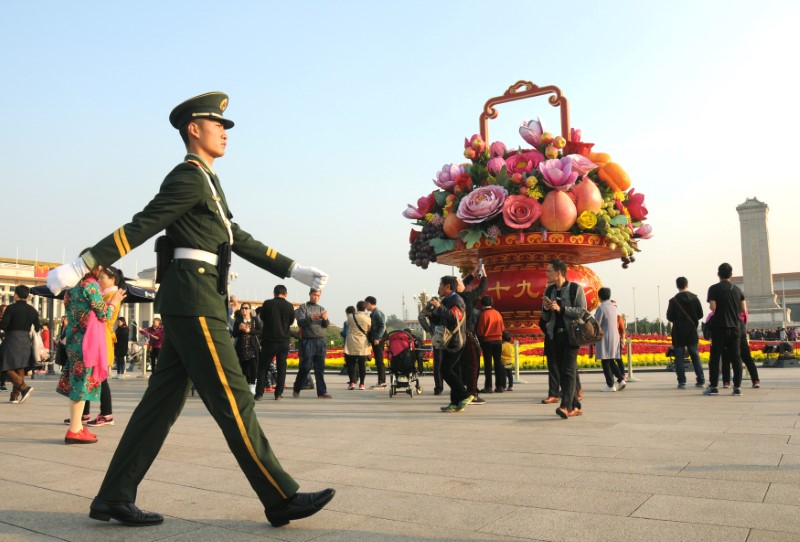
A paramilitary police officer patrols the area around Tiananmen Square ahead of the 19th National Congress of the Communist Party of China, in Beijing, China October 13, 2017. REUTERS/Stringer
October 15, 2017
BEIJING (Reuters) – No free fruit in hotel rooms, no free hair cuts and no prawns on the menu – delegates at this week’s Communist Party Congress in China can expect austere treatment in keeping with President Xi Jinping’s pledge to crack down on corruption and extravagance.
Part of Xi’s fight against deep-seated graft has been to ensure officials are not seen abusing their positions and wasting public money, after a series of scandals involving high-living bureaucrats ignited public anger.
Wang Lilian, who has helped oversee hospitality for delegates at three previous party Congresses, told state radio in remarks reported on Sunday that this time, things are going to be very different.
Delegates will, for example, find their hotels bereft of the large welcoming banners and displays of flowers common in previous years.
But the biggest difference will be with their rooms and food, Wang said.
“There won’t be any more fruit put out in rooms, whereas previously there were for delegates and staff. There’s none of that this time,” he said.
The food was also going to be home-style and simple, Wang said.
“There’s no sea cucumber, prawns or the like. It’s all buffet style.”
Delegates won’t get free hair cuts or beauty treatments and there won’t be any gift shops.
“There’s none of these services this time,” Wang said.
Xi himself has lead the way in promoting simple living, with state media widely reporting on the basic food he eats when on trips around the country, and giving extensive coverage to cases where officials are found to have hoarded gold, owned multiple houses or had a fondness for banquets.
Xi has warned, like others before him, that if corruption is not tackled it could affect the party’s grip on power.
The once-in-five-years Congress opens on Wednesday with a major speech by Xi.
(Reporting by Ben Blanchard and Cheng Fang; Editing by Robert Birsel)

